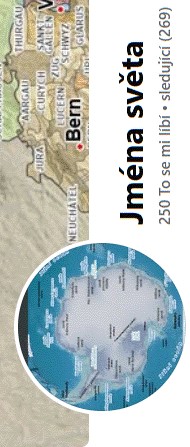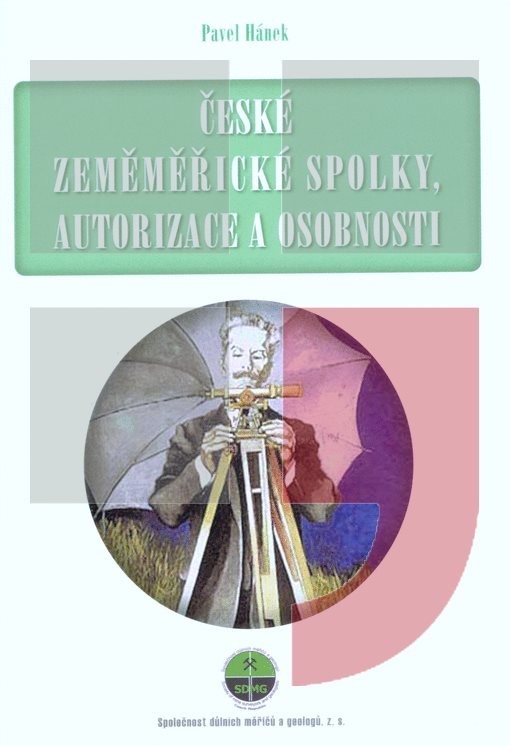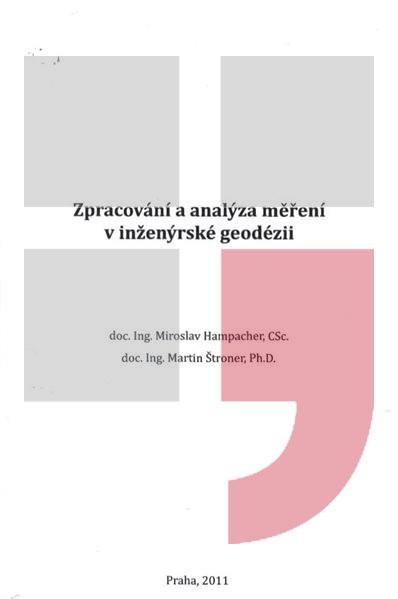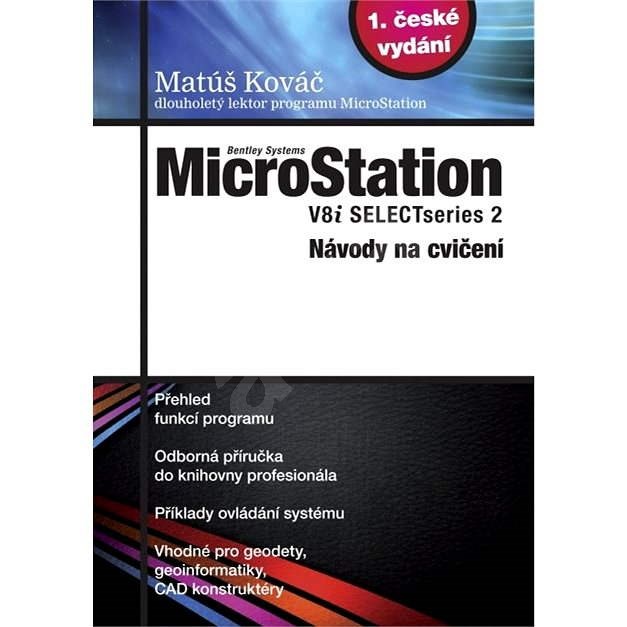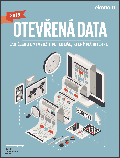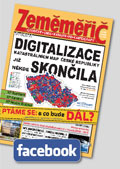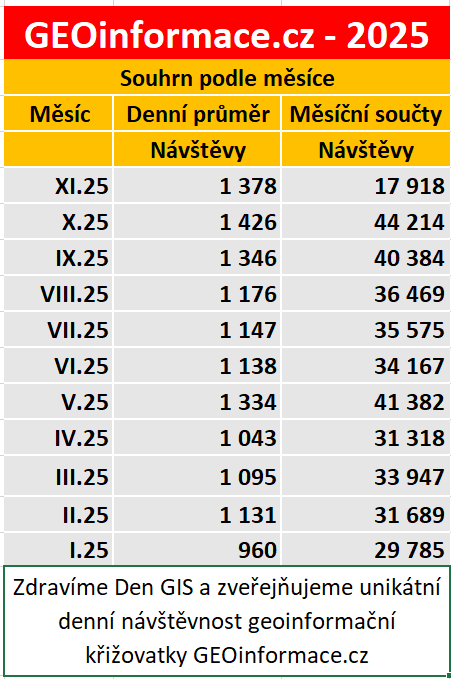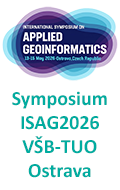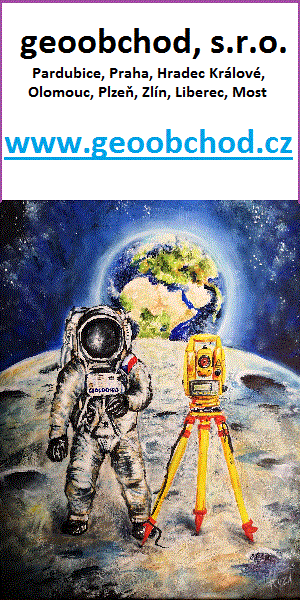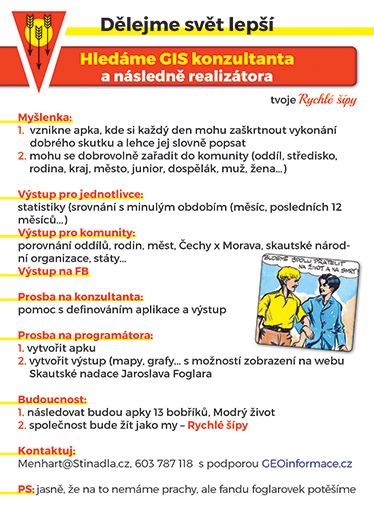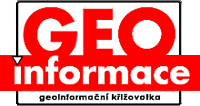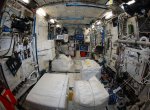zprávy
zdroje zpráv:Geoinformatikem na Ministerstvu vnitra
12.2.2019 7:00 Česká asociace pro geoinformace Ministerstvo vnitra České republiky vypisuje hned několik výběrových řízení na služební místa v oddělení geoinformatiky. Pokud vás zajímá zaměstnání ve státní správě, neváhejte navštívit pro více informací webové stránky MVKartografický den Olomouc 2020 - první informace
12.2.2019 7:00 Česká asociace pro geoinformaceKartografický den Olomouc 2020 - první informace
Tradičně poslední únorový pátek (28. února) se v Olomouci v budově Přírodovědecké fakulty Univerzity Palackého koná již 14. Kartografický den, tentokrát na téma Kartografie a sport.
Více informací již brzy na webových stránkách akce.
Tradičně poslední únorový pátek (28. února) se v Olomouci v budově
ProStar Geocorp Strengthens Its Management Team with Vasa Dasan
12.2.2019 1:17 GISCafe.com Webcasts-Webinars GRAND JUNCTION, Colo. — (BUSINESS WIRE) — February 11, 2019 — Doxa Energy Ltd (“Doxa” or the “Company”) and …Paleontologické kolekce (sbírky ČGS)
12.2.2019 1:00 Cenia - Katalog metadat ČR - INSPIRE Databáze představuje registr unikátních paleontologických kolekcí ČGS včetně typového a originálního materiálu. Starší kolekce jsou postupně převáděny do evidence CES Ministerstva kultury ČR, nový materiál je spravován již pouze ve smyslu zákona 122/2000 Sb. a následných předpisů. V databázi jsou průběžně evidovány přírůstky, a je do ní převáděna i kartotéka paleontologických kolekcí, která je přístupná v pracovně oddělení sbírek.Výbrusová dokumentace (sbírky ČGS) - krabice s výbrusy
12.2.2019 1:00 Cenia - Katalog metadat ČR - INSPIRE Databáze zahrnuje soupis kolekcí (krabic) petrografických výbrusů uložených v ČGS a nově i jednotlivých skel, příp. výčtu horninotvorných minerálů. Jedná se výbrusy pocházející z geologického mapování, regionálních a speciálních výzkumů ČGS od 30. let.Hluková mapa automobilové dopravy - den
12.2.2019 1:00 Cenia - Katalog metadat ČR - INSPIRE Výpočtová hluková mapa automobilové dopravy v Praze pro denní a noční dobu- deskriptor LdHluková pásma po 5 dB.Hodnota DB_LO udává dolní hranici intervalu, hodnota DB_HI udává horní hranici intervalu.Stav 2010Výbrusová dokumentace (sbírky ČGS) - skla
12.2.2019 1:00 Cenia - Katalog metadat ČR - INSPIRE Databáze jednotlivých skel výbrusů uložených v ČGS, příp. výčtu horninotvorných minerálů. Jedná se výbrusy pocházející z geologického mapování, regionálních a speciálních výzkumů ČGÚ od 30. let.Hluková mapa automobilové dopravy - noc
12.2.2019 1:00 Cenia - Katalog metadat ČR - INSPIRE Výpočtová hluková mapa automobilové dopravy v Praze pro denní a noční dobu- deskriptor LnHluková pásma po 5 dB.Hodnota DB_LO udává dolní hranici intervalu, hodnota DB_HI udává horní hranici intervalu.Stav 2010LAREM (laboratoře rentgenové mikroanalýzy), Praha - rezervace analytických a servisních prací
12.2.2019 1:00 Cenia - Katalog metadat ČR - INSPIRE Databáze rezervace termínů analytických a servisních prací na rastrovacím elektronovém mikroskopu CamScan 3200 a EDS a WDS mikroanalytickém systému Laboratoře rentgenové mikroanalýzy (LAREM).Dokumentační vzorky ke geologickým mapám (sbírky ČGS)
12.2.2019 1:00 Cenia - Katalog metadat ČR - INSPIRE Databáze představuje registr hmotné dokumentace, tj. kusových vzorků (kromě vrtů), uložené v bednách ve skladu ČGS v Lužné. Tento registr bude postupně rozšířen o seznam kusových vzorků archivovaných v Brně a v Jeseníku. Jedná se o dokladové vzorky ke geologickému mapování, ložiskovým, geochemickým, mineralogickým a speciálním výzkumům.Geologicko-mineralogická kolekce (sbírky ČGS)
12.2.2019 1:00 Cenia - Katalog metadat ČR - INSPIRE Databáze zahrnuje registr v České republice jedinečných, regionálně-geologicky zaměřených kolekcí, uložených v České geologické službě. Ty sestávají ze vzorků mineralogických (často velmi cenných) i geologických (vzorky hornin, často z již dnes zaniklých lokalit). V minulosti byla část předána na VŠB Ostrava k didaktickým účelům. Nejcennější součástí je Šafránkova kolekce převážně příbramských rudních a kladenských rudních a sekundárních minerálů, dále i kolekce vltavínů (Žebera, Krejčí, Hrabě aj.). Kolekce slouží hlavně jako srovnávací studijní materiál z České republiky, v menší míře obsahují i zahraniční materiál, pocházející zejména ze studijních cest pracovníků ČGS.Mapovací a dokumentační vrty ČGS (v procesu reskartace)
12.2.2019 1:00 Cenia - Katalog metadat ČR - INSPIRE Databáze představuje registr vrtů uložených ve skladech hmotné dokumentace ČGS a dílčí databázi vrtů předaných Geofondu. Vrtná jádra jsou uložena v bednách v depozitáři ČGS v Lužné u Rakovníka. V současné době je veškerý materiál reskartován pracovníky odboru Geofond (dr. Alan Donát) a zařazován do systému Vrtné hmotné dokumentace Geofond, tudíž je dočasně nepřístupný ke studiu.EagleView Secures Significant Court Wins In Ongoing Patent Litigation Against Xactware And Verisk
12.2.2019 0:04 GISCafe.com Webcasts-Webinars BELLEVUE, Wash., Feb. 11, 2019 — (PRNewswire) — EagleView®, a leading technology provider of aerial imagery and data …EagleView Secures Significant Court Wins In Ongoing Patent Litigation Against Xactware And Verisk
12.2.2019 0:04 GISCafe.com Webcasts-Webinars BELLEVUE, Wash., Feb. 11, 2019 — (PRNewswire) — EagleView®, a leading technology provider of aerial imagery and data analytics, …Dstillery Awarded Patent for Determining Geodata Authenticity
11.2.2019 20:39 GISCafe.com Webcasts-Webinars NEW YORK, Feb. 11, 2019 (GLOBE NEWSWIRE) -- Dstillery, the leading applied data science company serving the marketing & advertising industry, …Kratos Receives $14 Million in Unmanned Aerial Drone System Contract Awards
11.2.2019 15:53 GISCafe.com Webcasts-Webinars SAN DIEGO, Feb. 11, 2019 (GLOBE NEWSWIRE) -- Kratos Defense & Security Solutions, Inc. (Nasdaq: KTOS), a leading National Security Solutions …Esri Demonstrates at HIMSS Conference How Location Intelligence Helps Grow Healthier Communities
11.2.2019 15:53 GISCafe.com Webcasts-Webinars Esri Customer Providence St. Joseph Health Showcases How EsriTechnology Can Improve Community Health Status across the Health
System's …
Bentley Systems Announces Acquisition of SignCAD Systems, Leading Provider of Traffic Sign Design Software
11.2.2019 15:11 Bentley SystemsSign design solutions augment Bentley’s software portfolio to enable greater detail for
digital twins of transportation assets
EXTON, Pa. – Bentley Systems, Incorporated, the leading global provider of comprehensive software solutions for advancing the design, construction, and operations of infrastructure, today announced the acquisition of leading provider of software for traffic sign design and manufacturing, SignCAD Systems, based in Minneapolis, Minnesota. SignCAD provides sign design solutions to 43 state departments of transportation (DOTs) in the U.S., as well as many cities, counties, engineering firms, and manufacturers. SignCAD’s sign design capabilities complement Bentley’s OpenRoads civil design software offerings for roadway projects.
SignCAD’s offerings for traffic signs include sign design, sign manufacturing, and asset management software solutions. The acquisition builds upon Bentley’s ability to provide the most comprehensive set of solutions for design and construction of transportation assets. It will also allow Bentley to better serve roadway asset owners for the purposes of maintaining safer construction work zones while sustaining roadway performance criteria for the public.
Dustin Parkman, vice president, civil infrastructure design engineering for Bentley Systems, said, “For the past five years, we have been working diligently on increasing the level of detail that can be modeled and simulated within the OpenRoads environment. With the addition of SignCAD, 3D modeling of signs within the context of our roadway designs allows us to provide a higher fidelity representation of roadway assets, yielding benefits beyond design and construction workflows.
“In this new era of autonomous vehicles, the digital representation of roadway networks is quickly becoming just as vital as the physical roadway,” Parkman continued. “Faded or obscured signs and unusual intersections are commonplace throughout most of world’s roadway networks, presenting new and interesting challenges for roadway owners—challenges that often cannot be met by physical upgrades alone. To bridge that gap, we need a digital representation of roadway assets often referred to as a ‘digital twin.’ Roadway signs provide important information about the road network that can be leveraged far beyond conventional line of site machine learning methods, to provide additional depth of information and calibration. With the addition of SignCAD, Bentley’s digital twin for roadway assets will provide this valuable data to roadway asset owners.”
Judd Roby, president of SignCAD, said, “We are extremely excited about adding SignCAD into the realm of 3D modeling with OpenRoads. This acquisition supports our goals of continuing to meet the transportation owner/operators’ needs across the design, build, operate, and maintain lifecycle.”
Learn more at signcad.com.
About SignCAD
Founded in 1994, SignCAD Systems, Inc. is the leading provider of CAD/CAM software solutions for traffic sign design and manufacturing for the transportation industry. Its SignCAD®, SignTRACK®, and ConeZONE® applications are used by cities, counties, engineering firms, manufacturers and state DOTs. More about SignCAD.
Caption and Image:
SignCAD traffic sign design software is used by 43 state departments of transportation in the U.S.
Bentley, the Bentley logo, AssetWise, MicroStation, OpenRoads, ProjectWise, SignCAD, SignTRACK, and ConeZONE are either registered or unregistered trademarks or service marks of Bentley Systems, Incorporated or one of its direct or indirect wholly owned subsidiaries. All other brands and product names are trademarks of their respective owners.
Media Alert – Alta Devices: How Can Innovative Solar Technology Improve the Capabilities of High Altitude Pseudo Satellites (HAPS)?
11.2.2019 14:55 GISCafe.com Webcasts-Webinars LEIDEN, Netherlands — (BUSINESS WIRE) — February 10, 2019 —Alta Devices:
…
Taking Aeolus to the next level
11.2.2019 13:28 ESA Observing the Earth
Since ESA’s Aeolus satellite was launched in August, engineers and scientists have been carefully checking the information that this pioneering mission is delivering on the world’s winds – and now it’s time for the next phase.
Pojďme využít ISS
11.2.2019 12:27 Česká kosmická kancelářEvropská kosmická agentura vyhlásila několik výzev na vědecké využívání Mezinárodní kosmické stanice ISS zaměřené na materiálový výzkum a studium vlivu prostředí kosmického letu na lidský organizmus. Výzvy jsou jedinečnou příležitostí pro zapojení českých vědeckých institucí do prestižního evropského kosmického výzkumu.
Pojďme využít ISS
11.2.2019 12:27 Česká kosmická kancelářEvropská kosmická agentura vyhlásila několik výzev na vědecké využívání Mezinárodní kosmické stanice ISS zaměřené na materiálový výzkum a studium vlivu prostředí kosmického letu na lidský organizmus. Výzvy jsou jedinečnou příležitostí pro zapojení českých vědeckých institucí do prestižního evropského kosmického výzkumu.
20190211 Odborný referent oddělení právních vztahů k nemovitostem
11.2.2019 11:25 ČÚZK /Urady/Katastralni-urady/Katastralni-urady/Katastralni-urad-pro-Stredocesky-kraj/Katastralni-pracoviste/KP-Melnik/O-uradu/Aktuality/20161013Rada-odborny-rada-–-informatik-(1)20190211 Odborný referent oddělení právních vztahů k nemovitostem
11.2.2019 11:25 ČÚZK - předpisy a opatření Katastrální úřad pro Středočeský kraj - Katastrální pracoviště Mělník Vyhlášení výběrového řízení: Odborný rada oddělení právních vztahů k nemovitostem V části "Úřední deska", v sekci "Oznámení a jiná úřední sdělení" bylo vystaveno "Oznámení o vyhlášení výběrového řízení na obsazení služebního místa Odborný referent oddělení právních vztahů k nemovitostem"Odborný referent oddělení právních vztahů k nemovitostem
11.2.2019 11:24 ČÚZK - volná místa Katastrální úřad pro Středočeský kraj - Katastrální pracoviště Mělník vypisuje výběrové řízení na místo Odborný referent oddělení právních vztahů k nemovitostemOdborný referent oddělení právních vztahů k nemovitostem
11.2.2019 11:24 ČÚZK - předpisy a opatření Katastrální úřad pro Středočeský kraj - Katastrální pracoviště Mělníkvypisuje výběrové řízení na místo Odborný referent oddělení právních vztahů k nemovitostem
Odborný referent oddělení právních vztahů k nemovitostem
20190211 Rada/odborný rada oddělení aktualizace katastru nemovitostí
11.2.2019 11:15 ČÚZK - předpisy a opatření Katastrální úřad pro Středočeský kraj - Katastrální pracoviště Benešov Vyhlášení výběrového řízení: Rada/odborný rada oddělení aktualizace katastru nemovitostí V části "Úřední deska", v sekci "Oznámení a jiná úřední sdělení" bylo vystaveno "Oznámení o vyhlášení výběrového řízení na obsazení služebního místa Rada/odborný rada oddělení aktualizace katastru nemovitostí "20190211 Rada/odborný rada oddělení aktualizace katastru nemovitostí
11.2.2019 11:15 ČÚZK /Urady/Katastralni-urady/Katastralni-urady/Katastralni-urad-pro-Stredocesky-kraj/Katastralni-pracoviste/KP-Benesov/O-uradu/Aktuality/20161013Rada-odborny-rada-–-informatik-(1)Rada/odborný rada oddělení aktualizace katastru nemovitostí
11.2.2019 11:13 ČÚZK - předpisy a opatření Katastrální úřad pro Středočeský kraj - Katastrální pracoviště Benešovvypisuje výběrové řízení na místo Rada/odborný rada oddělení aktualizace katastru nemovitostí
Rada/odborný rada oddělení aktualizace katastru nemovitostí
Rada/odborný rada oddělení aktualizace katastru nemovitostí
11.2.2019 11:13 ČÚZK - volná místa Katastrální úřad pro Středočeský kraj - Katastrální pracoviště Benešov vypisuje výběrové řízení na místo Rada/odborný rada oddělení aktualizace katastru nemovitostíAktualizace dat ÚAP poskytovatelů České radiokomunikace a Český báňský úřad
11.2.2019 11:10 Plzeňský kraj V datech územně analytických podkladů Plzeňského kraje byla provedena kompletní aktualizace dat ve správě poskytovatele České radiokomunikace a.s. Dále bylo provedeno doplnění dat poskytovatele Český báňský úřad - zrušení dobývacího prostoru Rabí.Byli jsme vybráni mezi 13 inovativních firem v zemědělství a máme video v projektu Farma 4.0
11.2.2019 9:23 UpVision Byli jsme vybráni mezi 13 inovativních firem a zemědělských farem pro osvětová videa Farma 4.0 za podpory Ministerstva zemědělství a Asociace malých a středních podniků a živnostníků ČR.Prohlédněte si video s rozhovorem zde:
https://youtu.be/o0ALJr-JPls
Byli jsme opět v Eurocontrolu v Bruselu na dalším jednání USpace demonstrators network
11.2.2019 9:23 UpVision V pátek jsme byli s ŘLP opět v EUROCONTROLu v Bruselu na dalším jednání European U-Space demonstrators network, které jsme členové. Podle posledních zpráv z EASA a Evropské komise by EU legislativa měla být přijata v dubnu a bude následovat jen roční přechodné období pro její implementaci, což zní jako velká výzva.Více zde:
https://www.facebook.com/permalink.php?story_fbid=916589808529587&id=199025016952740
Island love
11.2.2019 9:12 ESA Observing the Earth
With Valentine’s Day around the corner, we will soon be expressing our love to those nearest and dearest – and maybe that can include our beautiful home planet, after all it needs all the love and care it can get.
Koupací vody
11.2.2019 1:00 Cenia - Katalog metadat ČR - INSPIRE Hodnocení kvality vybraných koupacích vod průběžně aktualizované během koupací sezóny (zpravidla květen - září). Kontroly jakosti koupacích vod jsou prováděny krajskými hygienickými stanicemi nebo provozovateli koupališť minimálně jedenkrát měsíčně.Elektronová mikrosonda, Brno - rezervace
11.2.2019 1:00 Cenia - Katalog metadat ČR - INSPIRE Databáze rezervací elektronové mikrosondy CAMECA SX100 na "Pracovišti elektronové mikroskopie a mikroanalýzy" - společném zařízení Přírodovědecké fakulty Masarykovy univerzity v Brně a ČGS (pracoviště Brno).Strategické hlukové mapy 2017 - Aglomerace - celek (Ldvn)
11.2.2019 1:00 Cenia - Katalog metadat ČR - INSPIRE Služba poskytuje údaje ze 3. kola strategického hlukového mapování aglomerací, které jsou zobrazeny v 5dB pásmech hlukového indikátoru Ldvn. Součástí 3. kola SHM bylo 7 aglomerací: Praha, Brno, Ostrava, Ústí nad Labem - Teplice, Liberec, Plzeň, Olomouc.Koupací vody
11.2.2019 1:00 Cenia - Katalog metadat ČR - INSPIRE Hodnocení kvality vybraných koupacích vod průběžně aktualizované během koupací sezóny (zpravidla květen - září). Kontroly jakosti koupacích vod jsou prováděny krajskými hygienickými stanicemi nebo provozovateli koupališť minimálně jedenkrát měsíčně.Kontakt na zaměstnance ČGS
11.2.2019 1:00 Cenia - Katalog metadat ČR - INSPIRE Databáze kontaktů na zaměstnance České geologické služby.Historie názvoslovných komisí
11.2.2019 1:00 Cenia - Katalog metadat ČR - INSPIRE Publikace se zabývá stoletou historií činnosti názvoslovných komisí působících na území dnešní České republiky a stoletím zpracování geografických jmen na území ČR. Publikace je doplněna medailonky některých členů názvoslovných komisí a bohatým obrazovým materiálem ke zpracování geografických jmen. V tomto rozsahu je to první práce svého druhu. Publikace má 71 stran včetně 27 stran obrazových příloh. ISBN pro PDF verzi: ISBN 978-80-88197-08-9 a je zdarma ke stažení.E-shop ČGS
11.2.2019 1:00 Cenia - Katalog metadat ČR - INSPIRE Databáze online obchodu České geologické služby, největšího vydavatele geologické literatury v ČR. Tento e-shop nabízí kolem 2600 položek, a to jak z vlastní produkce, tak od jiných nakladatelství. Prodává hlavně mapy, knihy, časopisy, ale také DVD, CD nebo pracovní nářadí a pomůcky. Nezaměřuje se pouze na odborníky, ale zajišťuje knihy pro děti, nebo pro širokou veřejnost.INSPIRE stahovací služba - síť stanic sledování množství povrchových vod
11.2.2019 1:00 Cenia - Katalog metadat ČR - INSPIRE Vrstva umístění vodoměrných stanic.Jedná se o předpřipravená data.LAREM (laboratoře rentgenové mikroanalýzy), Praha - rezervace analytických prací
11.2.2019 1:00 Cenia - Katalog metadat ČR - INSPIRE Databáze rezervace termínů analytických prací na rastrovacím elektronovém mikroskopu CamScan 3200 a EDS a WDS mikroanalytickém systému Laboratoře rentgenové mikroanalýzy (LAREM).Metadatový katalog ČGS
11.2.2019 1:00 Cenia - Katalog metadat ČR - INSPIRE Databáze Metadatový katalog ČGS slouží jako centrální sklad popisu jednotlivých databází, služeb a aplikací, které jsou ve správě CGS .Strategické hlukové mapy 2017
11.2.2019 1:00 Cenia - Katalog metadat ČR - INSPIRE Stahovací služba poskytuje údaje ze 3. kola strategického hlukového mapování, prováděného v roce 2017. Projekt hlukového mapování se týkal 7 aglomerací (Praha, Brno, Ostrava, Ústí nad Labem - Teplice, Liberec, Plzeň a Olomouc), hlavního letiště s 50 000 vzlety a přistáními za rok (Letiště Václav Havel Praha Ruzyně), hlavních silnic, po kterých projede více než 3 000 000 vozidel za rok, a hlavních železničních tratí, po kterých projede více než 30 000 vlaků za rok.Obnovení závlah? Mlácení prázdné slámy, tvrdí zemědělec
11.2.2019 0:00 Státní pozemkový úřad Břeclavský deník, 8. 2. 2019Ministr Toman s pozemkovými úpravami počítá
10.2.2019 14:17 Asociace podnikatelů v geomatice Jednání s Miroslavem Tomanem, ministrem zemědělství se za asociaci zúčastnili předseda APG Martin Hrdlička, Zdeněk Hrubý a výkonný ředitel APG Jaroslav Cibulka. Jednání bylo velmi otevřené až ostré. Předseda APG jednoznačně uvedl, že bez navýšení zdrojů na pozemkové úpravy není možné realizovat nové projekty, které budou akcentovat problematiku zadržování vody v krajině. Ministrovi jsme představili APG a dlouholeté zkušenosti […]Ministr Toman s pozemkovými úpravami počítá
10.2.2019 14:17 Asociace podnikatelů v geomatice Jednání s ministrem zemědělství Miroslavem Tomanem se za asociaci zúčastnili předseda APG Martin Hrdlička, Zdeněk Hrubý a výkonný ředitel APG Jaroslav Cibulka. Předseda APG jednoznačně uvedl, že bez navýšení zdrojů na pozemkové úpravy není možné realizovat nové projekty, které budou akcentovat problematiku zadržování vody v krajině. Ministrovi jsme představili APG a dlouholeté zkušenosti našich členů s pozemkovými úpravami. Zdůraznili jsme, […]MAPPS Presents the 2018 Geospatial Products and Services Excellence Awards
10.2.2019 11:35 GISCafe.com Webcasts-Webinars Forest Hill, MD (February, 10 2019) -- MAPPS honored members with the 2018 Geospatial Products and Services Excellence Awards as part …APGEO - MINISTR TOMAN S POZEMKOVÝMI ÚPRAVAMI POČÍTÁ
10.2.2019 1:00 Asociace podnikatelů v geomatice Jednání s ministrem zemědělství Miroslavem Tomanem se za asociaci zúčastnili předseda APG Martin Hrdlička, Zdeněk ...Přihlášky na Erasmus 2019/2020
9.2.2019 14:11 Katedra geoinformatiky UP OlomoucUž jen do 12. 2. 2019 můžete podávat přihlášky pro vycestování v rámci programů Erasmus další akademický rok. Neváhejte a využijte tuhle jedinečnou příležitost zažít neopakovatelný semestr nebo dva v zahraničí. Vyberte si svou vysněnou destinaci a získejte více informací zde: http://www.geoinformatics.upol.cz/mobility
The post Přihlášky na Erasmus 2019/2020 appeared first on Katedra geoinformatiky.
Drone Delivery Systems Announce a New Partnership with Antigua Computer Technology in the Caribbean.
8.2.2019 23:07 GISCafe.com Webcasts-Webinars The new partnership between Drone Delivery Systems and Antigua Computer Technology will bring drone delivery to the CaribbeanRICHMOND, Va., Feb. 8, …
Renoworks and Geomni Launch FastTrack for Roofing Contractors
8.2.2019 19:06 GISCafe.com Webcasts-Webinars Renoworks FastTrack, powered by Geomni, provides design, 3D visualizations, and detailed measurements.CALGARY, Alberta, and LEHI, Utah, February 8, …
Maxar Technologies Fourth Quarter 2018 Investor Call Scheduled for Thursday, February 28 2019
8.2.2019 16:55 GISCafe.com Webcasts-Webinars WESTMINSTER, CO, Feb. 7, 2019 — (PRNewswire) — Maxar Technologies (NYSE:MAXR) (TSX:MAXR), a global technology innovator powering …Swarm helps pinpoint new magnetic north for smartphones
8.2.2019 16:45 ESA Observing the Earth
Since it was first measured in 1831, we have known that the magnetic north is constantly on the move. However, its tendency to slowly roam has stepped up a pace recently – so much so that the World Magnetic Model has had to be updated urgently with the pole’s new location, vital for navigation on smartphones, for example. ESA’s magnetic field Swarm mission has been key for this update.
Digitální atlas zaniklých krajin Česka [Katedra aplikované geoinformatiky a kartografie, byTopic]
8.2.2019 11:35 Katedra aplikované geoinformatiky a kartografie Přf UK Digitální atlas zaniklých krajin Česka zpřístupňuje výstupy projektu Ministerstva kultury NAKI II "Dědictví zaniklých krajin: identifikace, rekonstrukce a zpřístupnění". Aktuálně je zpřístupněn atlas verze 2018, který zahrnuje výstupy pro modelová území Kutnohorsko, Kačina, Střední Povltaví, Krkonoše, Boletice, Příměstská krajina Prahy, Podbořansko a Rosicko-Oslavansko.20190208 Odborný referent oddělení dokumentace katastru nemovitostí
8.2.2019 11:04 ČÚZK - předpisy a opatření Katastrální úřad pro Středočeský kraj - Katastrální pracoviště Kolín Vyhlášení výběrového řízení: Odborný referent oddělení dokumentace katastru nemovitostí V části "Úřední deska", v sekci "Oznámení a jiná úřední sdělení" bylo vystaveno "Oznámení o vyhlášení výběrového řízení na obsazení služebního místa Odborný referent oddělení dokumentace katastru nemovitostí "20190208 Odborný referent oddělení dokumentace katastru nemovitostí
8.2.2019 11:04 ČÚZK /Urady/Katastralni-urady/Katastralni-urady/Katastralni-urad-pro-Stredocesky-kraj/Katastralni-pracoviste/KP-Kolin/O-uradu/Aktuality/20190116-Odborny-referent-oddeleni-dokumentace-(1)Leica Geosystems, SVAB integrate machine control solutions with tool recognition for excavators, wheel loaders
8.2.2019 10:15 GISCafe.com Webcasts-Webinars Increasing efficiency of machine control by removing the need for manual settings(HEERBRUGG, SWITZERLAND, 7 FEBRUARY 2019) -- Leica Geosystems, …
Earth from Space
8.2.2019 10:05 ESA Observing the Earth
In this week's edition, we explore part of Northeast Kenya with Copernicus Sentinel-2A
Northeast Kenya
8.2.2019 10:05 ESA Observing the Earth
Earth observation image of the week: the Copernicus Sentinel-2A satellite takes us over the arid land of northeast Kenya
"Dresdner Robin Assesses Flood-Prone Waterways Using Drone Image Capture" by Susan Smith
8.2.2019 9:56 GISCafe.com Webcasts-WebinarsStaré filmy o výrobě map a glóbů [Knihovna geografie, byTopic]
8.2.2019 9:10 Katedra aplikované geoinformatiky a kartografie Přf UKNabídka práce: Správce prostorových dat na brněnském magistrátu
8.2.2019 7:00 Česká asociace pro geoinformaceSprávce prostorových dat (Brno), Odbor dopravy Magistrátu města Brna
Abstrakt:
Odbor dopravy Magistrátu města Brna hledá nového správce prostorových dat.
Popis pozice:
• Správa a analytická práce dopravních dat se zaměřením na prostorová data a GIS
o Dopravní zázemí koncepce dopravy s důrazem na městskou mobilitu
o GIS technologie města kombinující
Kartografický den Olomouc - program
8.2.2019 7:00 Česká asociace pro geoinformace V pátek 22. února 2019 se v Olomouci uskuteční již třináctý ročník tradičního odborného kartografického semináře - Kartografický den Olomouc. Tématem letošního ročníku je kartografie a média. Těšit se můžete na zástupce různých druhů médií a dozvědět se, jak se dělají mapy v televizi, rozhlase i tisku.Program
REGISTRACE od
Pozvánka na předvánoční mapathon v Plzni
8.2.2019 7:00 Česká asociace pro geoinformacePozvánka na předvánoční mapathon v Plzni
Přijďte a podpořte práci humanitárních organizací tím, že pomůžete zmapovat místa, která jsou nejvíce ohrožena krizemi. Srdečně zveme úplné začátečníky i ty, kdo už mapovat umí.
Kde? HUB 2.0 - Cukrovarská 20, Plzeň
Kdy? Ve středu 11. prosince od 18:00 do 21:00
Co? Mapování nezmapovaných oblastí
Více o akci a
Nový elektronický meteorologický slovník
8.2.2019 7:00 Česká asociace pro geoinformaceČeská meteorologická společnost vydala novou verzi elektronického meteorologického slovníku. Slovník obsahuje téměř 4500 odborných termínů z meteorologie, klimatologie a příbuzných oborů, cizojazyčné ekvivalenty a více než 300 odborných zkratek.
Elektronický meteorologický slovník výkladový a terminologický (eMS) je výsledkem mnohaleté práce terminologické
DXC Technology Delivers Sequential Growth in Revenue, Bookings, EBIT and Earnings per Share
8.2.2019 1:08 GISCafe.com Webcasts-Webinars Q3 earnings per share from continuing operations was $1.66,including the cumulative impact of certain items of $(0.57) per share,
…
Strategické hlukové mapy 2017 - Aglomerace - průmysl (Ldvn)
8.2.2019 1:00 Cenia - Katalog metadat ČR - INSPIRE Služba poskytuje údaje ze 3. kola strategického hlukového mapování průmyslových zdrojů v aglomeracích, které jsou zobrazeny v 5dB pásmech hlukového indikátoru Ldvn. Součástí 3. kola SHM bylo 7 aglomerací: Praha, Brno, Ostrava, Ústí nad Labem - Teplice, Liberec, Plzeň, Olomouc.Strategické hlukové mapy 2017 - Hlavní železnice (Ln)
8.2.2019 1:00 Cenia - Katalog metadat ČR - INSPIRE Služba poskytuje údaje ze 3. kola strategického hlukového mapování hlavních železničních tratí, které jsou zobrazeny v 5dB pásmech hlukového indikátoru Ln. Součástí 3. kola SHM byly úseky tratí, po kterých projede více než 30 000 vlaků za rok.Strategické hlukové mapy 2017 - Aglomerace - železnice (Ldvn)
8.2.2019 1:00 Cenia - Katalog metadat ČR - INSPIRE Služba poskytuje údaje ze 3. kola strategického hlukového mapování železničních tratí v aglomeracích, které jsou zobrazeny v 5dB pásmech hlukového indikátoru Ldvn. Součástí 3. kola SHM bylo 7 aglomerací: Praha, Brno, Ostrava, Ústí nad Labem - Teplice, Liberec, Plzeň, Olomouc.Strategické hlukové mapy 2017 - Aglomerace - celek (Ln)
8.2.2019 1:00 Cenia - Katalog metadat ČR - INSPIRE Služba poskytuje údaje ze 3. kola strategického hlukového mapování aglomerací, které jsou zobrazeny v 5dB pásmech hlukového indikátoru Ln. Součástí 3. kola SHM bylo 7 aglomerací: Praha, Brno, Ostrava, Ústí nad Labem - Teplice, Liberec, Plzeň, Olomouc.Strategické hlukové mapy 2017 - Aglomerace - průmysl (Ln)
8.2.2019 1:00 Cenia - Katalog metadat ČR - INSPIRE Služba poskytuje údaje ze 3. kola strategického hlukového mapování průmyslových zdrojů v aglomeracích, které jsou zobrazeny v 5dB pásmech hlukového indikátoru Ln. Součástí 3. kola SHM bylo 7 aglomerací: Praha, Brno, Ostrava, Ústí nad Labem - Teplice, Liberec, Plzeň, Olomouc.Strategické hlukové mapy 2017 - Aglomerace - silnice (Ln)
8.2.2019 1:00 Cenia - Katalog metadat ČR - INSPIRE Služba poskytuje údaje ze 3. kola strategického hlukového mapování silnic v aglomeracích, které jsou zobrazeny v 5dB pásmech hlukového indikátoru Ln. Součástí 3. kola SHM bylo 7 aglomerací: Praha, Brno, Ostrava, Ústí nad Labem - Teplice, Liberec, Plzeň, Olomouc.Strategické hlukové mapy 2017 - Počty zasažených osob a zařízení
8.2.2019 1:00 Cenia - Katalog metadat ČR - INSPIRE Služba poskytuje údaje ze 3. kola strategického hlukového mapování aglomerací, které jsou zobrazeny v 5dB pásmech hlukového indikátoru Ldvn. Součástí 3. kola SHM bylo 7 aglomerací: Praha, Brno, Ostrava, Ústí nad Labem - Teplice, Liberec, Plzeň, Olomouc.Koupací vody
8.2.2019 1:00 Cenia - Katalog metadat ČR - INSPIRE Kvalita koupacích vod se určuje každoročně v koupací sezóně v týdenních až třítýdenních intervalech. Pracovníci Zdravotních ústavů v pondělí odebírají vodu a do čtvrtka ji analyzují. Ve čtvrtek se výsledky posílají do centrálního registru pitných a koupacích vod (PiVo), kde dojde k hodnocení a kontrole údajů pracovníky Krajských hygienických stanic. V pátek jsou data za celou ČR zveřejněna na serveru http://www.koupacivody.cz.Strategické hlukové mapy 2017 - Hlavní železnice (Ldvn)
8.2.2019 1:00 Cenia - Katalog metadat ČR - INSPIRE Služba poskytuje údaje ze 3. kola strategického hlukového mapování hlavních železničních tratí, které jsou zobrazeny v 5dB pásmech hlukového indikátoru Ldvn. Součástí 3. kola SHM byly úseky tratí, po kterých projede více než 30 000 vlaků za rok.Strategické hlukové mapy 2017 - Hlavní silnice (Ln)
8.2.2019 1:00 Cenia - Katalog metadat ČR - INSPIRE Služba poskytuje údaje ze 3. kola strategického hlukového mapování hlavních silnic, které jsou zobrazeny v 5dB pásmech hlukového indikátoru Ln. Součástí 3. kola SHM byly sčítané úseky komunikací, po kterých projede více než 3 000 000 vozidel za rok.Strategické hlukové mapy 2017 - Aglomerace - silnice (Ldvn)
8.2.2019 1:00 Cenia - Katalog metadat ČR - INSPIRE Služba poskytuje údaje ze 3. kola strategického hlukového mapování silnic v aglomeracích, které jsou zobrazeny v 5dB pásmech hlukového indikátoru Ldvn. Součástí 3. kola SHM bylo 7 aglomerací: Praha, Brno, Ostrava, Ústí nad Labem - Teplice, Liberec, Plzeň, Olomouc.Strategické hlukové mapy 2017 - Hlavní silnice (Ldvn)
8.2.2019 1:00 Cenia - Katalog metadat ČR - INSPIRE Služba poskytuje údaje ze 3. kola strategického hlukového mapování hlavních silnic, které jsou zobrazeny v 5dB pásmech hlukového indikátoru Ldvn. Součástí 3. kola SHM byly sčítané úseky komunikací, po kterých projede více než 3 000 000 vozidel za rok.Strategické hlukové mapy 2017
8.2.2019 1:00 Cenia - Katalog metadat ČR - INSPIRE 3. kolo Strategického hlukového mapování v ČR bylo prováděno v roce 2017. Projekt hlukového mapování se týkal 7 aglomerací (Praha, Brno, Ostrava, Ústí nad Labem - Teplice, Liberec, Plzeň a Olomouc), hlavního letiště s 50 000 vzlety a přistáními za rok (Letiště Václav Havel Praha Ruzyně), hlavních silnic, po kterých projede více než 3 000 000 vozidel za rok, a hlavních železničních tratí, po kterých projede více než 30 000 vlaků za rok.Strategické hlukové mapy 2017 - Aglomerace - letiště (Ln)
8.2.2019 1:00 Cenia - Katalog metadat ČR - INSPIRE Služba poskytuje údaje ze 3. kola strategického hlukového mapování letišť v aglomeracích, které jsou zobrazeny v 5dB pásmech hlukového indikátoru Ln. Součástí 3. kola SHM bylo 7 aglomerací: Praha, Brno, Ostrava, Ústí nad Labem - Teplice, Liberec, Plzeň, Olomouc.Strategické hlukové mapy 2017 - Hlavní letiště (Ldvn)
8.2.2019 1:00 Cenia - Katalog metadat ČR - INSPIRE Služba poskytuje údaje ze 3. kola strategického hlukového mapování hlavního letiště, které jsou zobrazeny v 5dB pásmech hlukového indikátoru Ldvn. Součástí 3. kola SHM bylo letiště Praha Ruzyně.Strategické hlukové mapy 2017 - Aglomerace - železnice (Ln)
8.2.2019 1:00 Cenia - Katalog metadat ČR - INSPIRE Služba poskytuje údaje ze 3. kola strategického hlukového mapování železničních tratí v aglomeracích, které jsou zobrazeny v 5dB pásmech hlukového indikátoru Ln. Součástí 3. kola SHM bylo 7 aglomerací: Praha, Brno, Ostrava, Ústí nad Labem - Teplice, Liberec, Plzeň, Olomouc.Strategické hlukové mapy 2017 - Počty zasažených osob a zařízení
8.2.2019 1:00 Cenia - Katalog metadat ČR - INSPIRE Služba poskytuje údaje ze 3. kola strategického hlukového mapování aglomerací, které jsou zobrazeny v 5dB pásmech hlukového indikátoru Ldvn. Součástí 3. kola SHM bylo 7 aglomerací: Praha, Brno, Ostrava, Ústí nad Labem - Teplice, Liberec, Plzeň, Olomouc.Strategické hlukové mapy 2017 - Aglomerace - letiště (Ldvn)
8.2.2019 1:00 Cenia - Katalog metadat ČR - INSPIRE Služba poskytuje údaje ze 3. kola strategického hlukového mapování letišť v aglomeracích, které jsou zobrazeny v 5dB pásmech hlukového indikátoru Ldvn. Součástí 3. kola SHM bylo 7 aglomerací: Praha, Brno, Ostrava, Ústí nad Labem - Teplice, Liberec, Plzeň, Olomouc.Strategické hlukové mapy 2017 - Hlavní letiště (Ln)
8.2.2019 1:00 Cenia - Katalog metadat ČR - INSPIRE Služba poskytuje údaje ze 3. kola strategického hlukového mapování hlavního letiště, které jsou zobrazeny v 5dB pásmech hlukového indikátoru Ln. Součástí 3. kola SHM bylo letiště Praha Ruzyně.Fortem Technologies to Showcase DroneHunter and Fortem SkyDome Safety and Security Solutions at Utah State Capitol Building
7.2.2019 23:12 GISCafe.com Webcasts-Webinars SALT LAKE CITY, Feb. 07, 2019 (GLOBE NEWSWIRE) -- Fortem Technologies, an award-winning airspace awareness, safety and security company based in …Terra Drone Invests in Indonesia's Drone Service Company AeroGeosurvey Indonesia
7.2.2019 19:04 GISCafe.com Webcasts-Webinars AeroGeosurvey Indonesia is part of the global Terra Drone group and the axis in Southeast AsiaJAKARTA, Indonesia, Feb. 7, 2019 — (PRNewswire) …
Critigen is Pleased to Announce its Participation in the Esri Utility Network Management Specialty
7.2.2019 19:04 GISCafe.com Webcasts-Webinars Critigen announces Utility Network Management Specialty AwardDENVER, Feb. 07, 2019 — (PRNewswire) —
DENVER, Feb. 07, 2019 …
Kespry Announces Site Planning Toolkit for Maximizing Mining and Aggregates Site Profitability
7.2.2019 19:04 GISCafe.com Webcasts-Webinars New toolkit enables mining and aggregate companies to measure and analyze operational data that drives decisions related to production and …EagleView Unveils Mobile App Update for Contractors at the International Roofing Expo
7.2.2019 19:04 GISCafe.com Webcasts-Webinars Latest innovation from EagleView brings property measurements to life with augmented realityBELLEVUE, Wash., Feb. 7, 2019 — (PRNewswire) …
CEDA oznámila novou zimní edici geodatabáze StreetNet
7.2.2019 18:37 GeoBusiness Firma Central European Data Agency informovala o aktualizaci své datové sady z území Česka (včetně příhraničí) a Slovenska. Pravidelná zimní edice dat je výsledkem ... PřečístCEDA oznámila novou zimní edici geodatabáze StreetNet
7.2.2019 18:37 GeoBusiness Firma Central European Data Agency informovala o aktualizaci své datové sady z území Česka (včetně příhraničí) a Slovenska. Pravidelná zimní edice dat je výsledkem ... PřečístC-Roads Czech Republic spustil zabezpečení zasílaných zpráv v dopravě
7.2.2019 16:44 GeoBusiness Pilotní projekt ITS kooperativních systémů C-Roads Czech Republic, umožňující přenos aktuálních dopravních informací mezi vozidly a mezi vozidlem a infrastrukturou na vybraných dálnicích, městech, ... PřečístC-Roads Czech Republic spustil bezpečnostní řešení pro zabezpečení zasílaných zpráv
7.2.2019 16:44 GeoBusiness Pilotní projekt ITS kooperativních systémů C-Roads Czech Republic, umožňující přenos aktuálních dopravních informací mezi vozidly a mezi vozidlem a infrastrukturou na vybraných dálnicích, městech, ... PřečístC-Roads Czech Republic spustil zabezpečení zasílaných zpráv v dopravě
7.2.2019 16:44 GeoBusiness Pilotní projekt ITS kooperativních systémů C-Roads Czech Republic, umožňující přenos aktuálních dopravních informací mezi vozidly a mezi vozidlem a infrastrukturou na vybraných dálnicích, městech, ... PřečístWoolpert Earns Lidar Leader Award for Outstanding Enterprise Achievement
7.2.2019 16:38 GISCafe.com Webcasts-Webinars DENVER (Feb. 7, 2019) — Woolpert has received the 2019 Lidar Leader Award for Outstanding Enterprise Achievement, presented by the …Grant pro studenty – účast na konferenci Living Planet 2019 v Itálii
7.2.2019 16:27 GeoBusiness Evropská kosmická agentura (ESA) společně s Evropskou komisí vypsala studentské granty pro účast na nadcházejícím symposiu Living Planet 2019. Jedná se o nejrozsáhlejší akci ... PřečístFlying under Aeolus
7.2.2019 16:05 ESA Observing the Earth
Scientists have been busy calibrating ESA’s Aeolus wind mission, which involves flying an aircraft under the satellite’s path
Four new Galileos join Europe’s largest satellite constellation
7.2.2019 15:16 ESA Navigation
The latest four Galileo satellites have been given the green light to begin working alongside the rest of Europe’s satellite navigation fleet, giving a further boost to worldwide Galileo service quality.
Four new Galileos join Europe’s largest satellite constellation
7.2.2019 15:16 ESA Navigation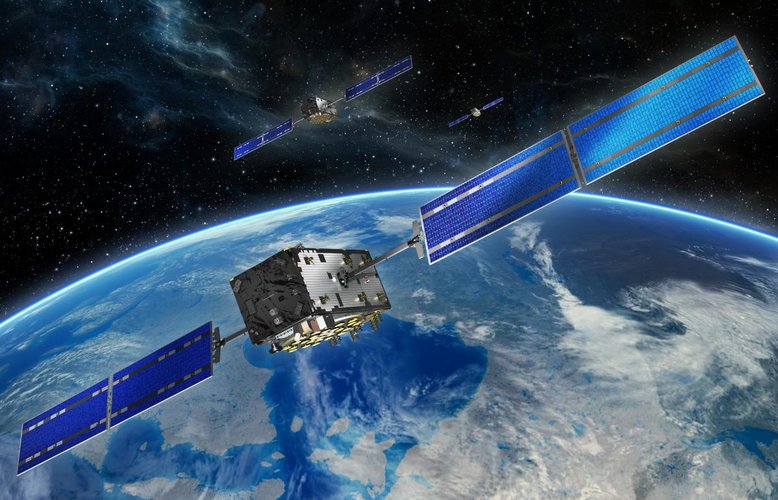
The latest four Galileo satellites have been given the green light to begin working alongside the rest of Europe’s satellite navigation fleet, giving a further boost to worldwide Galileo service quality.
Four new Galileos join Europe’s largest satellite constellation
7.2.2019 15:16 ESA Navigation
The latest four Galileo satellites have been given the green light to begin working alongside the rest of Europe’s satellite navigation fleet, giving a further boost to worldwide Galileo service quality.
Rada / odborný rada – obnova katastrálního operátu v oddělení aktualizace a dokumentace KN
7.2.2019 14:38 ČÚZK /Urady/Katastralni-urady/Katastralni-urady/Katastralni-urad-pro-Zlinsky-kraj/Uredni-deska/Oznameni-a-jina-uredni-sdeleni/Volna-mista/Rada-odborny-rada-–-obnova-katastralniho-opera-(1)Rada / odborný rada – obnova katastrálního operátu v oddělení aktualizace a dokumentace KN
7.2.2019 14:38 ČÚZK - předpisy a opatření Katastrální úřad pro Zlínský kraj - Katastrální pracoviště Valašské Kloboukyvypisuje výběrové řízení na místo
Rada / odborný rada – obnova katastrálního operátu v oddělení aktualizace a dokumentace KN
Rada / odborný rada – obnova katastrálního operátu v oddělení aktualizace a dokumentace KN
7.2.2019 14:38 ČÚZK - volná místa Katastrální úřad pro Zlínský kraj - Katastrální pracoviště Valašské Klobouky vypisuje výběrové řízení na místo Rada / odborný rada – obnova katastrálního operátu v oddělení aktualizace a dokumentace KNRozpočtář v ekonomicko - správním oddělení
7.2.2019 14:37 ČÚZK - předpisy a opatření Katastrální úřad pro Zlínský krajvypisuje výběrové řízení na místo
Rozpočtář v ekonomicko - správním oddělení
Rozpočtář v ekonomicko - správním oddělení
7.2.2019 14:37 ČÚZK - volná místa Katastrální úřad pro Zlínský kraj vypisuje výběrové řízení na místo Rozpočtář v ekonomicko - správním odděleníRozpočtář v ekonomicko - správním oddělení
7.2.2019 14:37 ČÚZK /Urady/Katastralni-urady/Katastralni-urady/Katastralni-urad-pro-Zlinsky-kraj/Uredni-deska/Oznameni-a-jina-uredni-sdeleni/Volna-mista/Rozpoctar-v-ekonomicko-spravnim-oddeleniVýstava historie vojenského mapování a leteckého měřického snímkování
7.2.2019 14:12 GeoBusiness Jako doprovodná akce k oslavám 100. výročí vzniku geografické služby Armády České republiky vznikla výstava Historie vojenského mapování a leteckého měřického snímkování na území ... PřečístMožné výpadky provozu DP a WSDP ve středu 13.2.2019 v době od 17:30 do cca 18:00
7.2.2019 13:13 ČÚZK /Aplikace-DP-do-KN/Aplikace-DP-do-KN/Archiv-DP/247903Možné výpadky provozu DP a WSDP ve středu 13.2.2019 v době od 17:30 do cca 18:00
7.2.2019 13:13 Dálkový přístup k údajům KN ČR Vážení uživatelé,oznamujeme, že ve středu 13.2.2019 lze v době od 17:30 do 18:00 očekávat z důvodu provozního zásahu krátkodobé výpadky aplikací Dálkový přístup a Webové služby dálkového přístupu.
Za komplikace tímto způsobené se omlouváme a děkujeme za pochopení.
Možné výpadky provozu DP a WSDP ve středu 13.2.2019 v době od 17:30 do cca 18:00
7.2.2019 13:13 ČÚZK - předpisy a opatření Vážení uživatelé,oznamujeme, že ve středu 13.2.2019 lze v době od 17:30 do 18:00 očekávat z důvodu provozního zásahu krátkodobé výpadky aplikací Dálkový přístup a Webové služby dálkového přístupu.
Za komplikace tímto způsobené se omlouváme a děkujeme za pochopení.
20191106-Stabilní katastr 1817-2017
7.2.2019 12:48 ČÚZK - předpisy a opatření Zeměměřický úřad zveřejnil novou aktualitu: Stabilní katastr 1817-2017 14. listopadu 2017 proběhla pod patronací ZÚ odborná konference Stabilní katastr 1817-2017. V nedávné době jsme vydali sborník z této konference, který v digitální podobě nabízíme široké veřejnosti. Stejně tak nabízíme i prezentace, které na konferenci zazněly.20191106-Stabilní katastr 1817-2017
7.2.2019 12:48 ČÚZK - předpisy a opatření Zeměměřický úřadzveřejnil novou aktualitu: 14. listopadu 2017 proběhla pod patronací ZÚ odborná konference Stabilní katastr 1817-2017. V nedávné době jsme vydali sborník z této konference, který v digitální podobě nabízíme široké veřejnosti. Stejně tak nabízíme i prezentace, které na konferenci zazněly.
20191106-Stabilní katastr 1817-2017
7.2.2019 12:48 Zeměměřický úřad Zeměměřický úřadzveřejnil novou aktualitu: 14. listopadu 2017 proběhla pod patronací ZÚ odborná konference Stabilní katastr 1817-2017. V nedávné době jsme vydali sborník z této konference, který v digitální podobě nabízíme široké veřejnosti. Stejně tak nabízíme i prezentace, které na konferenci zazněly.



